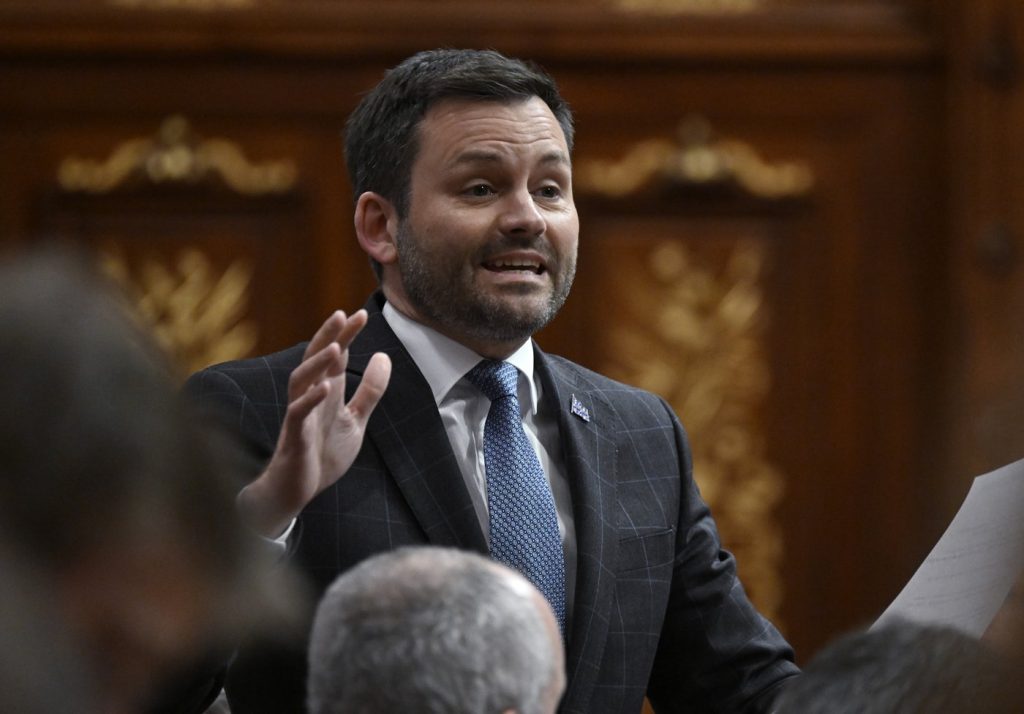MONTREAL — As Alberta considers the possibility of a separation referendum, Quebec sovereigntists are observing the situation with a mixture of interest and skepticism. Some Quebec nationalists hope that a surge of separatist sentiment in Alberta could rejuvenate Quebec's independence movement, which has faced challenges following recent federal elections that saw the Liberal Party gain ground at the expense of the sovereigntist Bloc Québécois.
However, others in Quebec perceive Alberta's brand of separatism, which stems from frustrations with federal Liberal policies, as fundamentally distinct from Quebec's sovereignty aspirations. Marie-Anne Alepin, the president of the Société St-Jean-Baptiste de Montréal, emphasized the differences, noting that Quebec possesses a distinct nationhood with its language, culture, and history, contrasting it with Alberta’s focus on an "oil-based future." She stated, “We have no common goals. We’re not alike.”
Alberta Premier Danielle Smith recently introduced legislation aimed at making it easier to trigger a citizen petition for a referendum on separation. Although Smith asserts that she does not advocate for Alberta's separation from Canada, she indicated her willingness to respect the outcome of a referendum if the petition meets the necessary threshold. Supporters of Alberta’s separatism argue that it is a means to assert their interests and prompt action from the federal government on longstanding grievances, particularly regarding oil and gas policies.
In Quebec, Paul St-Pierre Plamondon, leader of the Parti Québécois (PQ), has voiced support for Smith’s defense of Alberta’s interests while drawing parallels between Alberta and Quebec's desires for self-determination in response to perceived “abuses of power” by the federal government. Some analysts believe that Alberta's discussions on separation could help "normalize" the idea of independence in Quebec, potentially rekindling interest among those who may have previously been apathetic about the issue.
Despite a long-standing tradition of left-wing support for sovereignty movements in Quebec, Frédéric Lapointe, president of the Mouvement national des Québécoises et Québécois, expressed hope that a conservative-led independence push in Alberta might broaden support for Quebec's sovereignty. Nevertheless, Alepin raised questions about the authenticity of Alberta's separatist sentiments, suggesting that many Albertans may not genuinely wish to leave Canada but could be using the idea as leverage to negotiate better terms with the federal government.
With support for Quebec sovereignty generally hovering around 35 percent in recent years, the issue was overshadowed in the federal election, with geopolitical developments further complicating the landscape. A recent poll indicated support for separation in Alberta at 36 percent. Still, doubts linger over whether Albertans genuinely desire independence or are merely leveraging the concept to advance provincial interests.
First Nations groups in Alberta have publicly opposed the notion of a referendum, asserting that the province lacks the authority to override treaties with the federal government. Ghislain Picard, former Quebec regional chief of the Assembly of First Nations, warned that Alberta should reconsider its plans in light of this opposition, highlighting previous referenda held by Quebec’s Cree and Inuit populations, which overwhelmingly voted against separation in 1995.
Louise Harel, a former interim leader of the PQ, suggested that a growing separatist movement in Alberta could indeed increase sovereigntist sentiment in Quebec—but not through any common cause. She speculated that if Prime Minister Mark Carney were to propose measures favorable to Alberta, including oil pipeline support through Quebec, it might energize Quebec's independence efforts as a form of protest.
Bloc Québécois leader Yves-François Blanchet remarked that the essence of a successful separatist movement in Quebec is rooted in a defined cultural identity—something he believes Alberta's oil and gas infrastructure fails to provide. While Michael Wagner, an advocate for Alberta independence, acknowledged the differences between the two movements, he expressed that Alberta separatists could benefit from the example set by Quebec's historical leaders, such as René Lévesque, to gain broader support.
Though tangible alliances between separatists in Alberta and Quebec remain unlikely, there have been instances of dialogue. Daniel Turp, a former Bloc MP, presented Quebec's secession plan at a 2020 conference in Calgary focused on Albertan autonomy. Now, he posits that a referendum in Alberta could positively influence support for independence in Quebec, saying, “I think it could lead people who have always hesitated to want to vote yes.”











